美丽的草原我的家
Beautiful Grassland My Hometown
CHINESE MUSIC ENSEMBLE
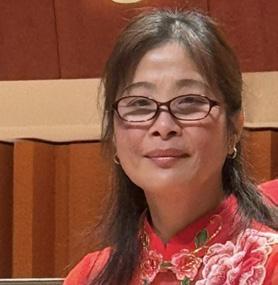


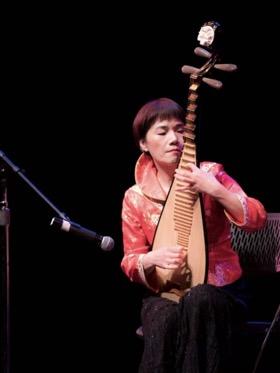
TUESDAY, NOVEMBER 11, 2025 at 7:30 p.m.
HODSGON CONCERT HALL

Tuesday, November 11, 2025 at 7:30 p.m.
Hodgson Concert Hall
UGA Performing Arts Center





TUESDAY, NOVEMBER 11, 2025 at 7:30 p.m.
HODSGON CONCERT HALL

Tuesday, November 11, 2025 at 7:30 p.m.
Hodgson Concert Hall
UGA Performing Arts Center
University of Georgia Chinese Music Ensemble
Vicki Lu, director
My Hometown RiKeZhe 我的家乡日喀则
Spring Sprout 春苗
Milking Cow Dance 挤奶舞曲
PROGRAM
UGA Chinese Music Ensemble
UGA Chinese Music Ensemble
UGA Chinese Music Ensemble
There is a Beautiful Place 有一个美丽的地方
UGA Hulusi Ensemble
The Flower of XinJiang 新疆之花
Towards a Brighter Future 光明行
UGA Dizi Ensemble
Erhu Ensemble: Gretta Maguire, Jodie Stone, Ashley Belcher, Emma Hu, Mason Minutella
Orchid Pavilion Preface 兰亭序
Guzheng Trio: Maxine Acosta, Jianing Leng, Vicki Lu
Horse Racing 赛马
Dizi: Weicheng Mao, Erhu: Spring Yang, Matouqin: Fengyu Qi
Guzheng: Vicki Lu, Yangqin: Huang Rongfu, Chen Ying
Beautiful Grassland My Hometown 美丽的草原我的家
UGA Dizi Ensemble
Heaven’s Road 天路
A Lili 阿哩哩
UGA Dizi Ensemble
UGA Dizi Ensemble
我的家乡日喀则 (Wǒ De Jiāxiāng Rìkāzé), My Hometown RiKeZhe
UGA Chinese Ensemble
RiKeZhe (Shigatse) is a city located in the Tibetan Autonomous Region, west of China’s Central Plain. This Tibetan folk song celebrates the natural beauty and cultural richness of RiKeZhe, a region known for its vast grasslands, flowing rivers, and pastoral lifestyle. My Hometown RiKeZhe lyrics vividly describe the stunning landscape: the river running clear and strong, the endless blue skies, and the hillsides and valleys where cattle and sheep graze peacefully. These images convey a deep connection between the people and their homeland, reflecting pride and affection for this unique place.
For this performance, the University of Georgia Chinese Music Ensemble presents an arrangement that blends the Tibetan melody with the sounds of a modern Chinese music ensemble. We invite listeners on a musical journey through the Tibetan landscape, capturing both its peaceful beauty and vibrant cultural heritage.
UGA Chinese Music Ensemble
Composed in 1988 by guzheng artist and educator Lin Jian (林坚), Spring Sprout is inspired by Miao ethnic folk melodies, portraying the spirit and innocence of Miao children and likening their growth to the tender seedlings of early spring. Normally a solo guzheng work, the piece features lyrical melodic lines, ornamented passages, and a bright, uplifting energy.
In our arrangement, Spring Sprout is reimagined for the full instrumental ensemble. Each instrument paints a sonic landscape, passing the melody from one to the next, creating a seamless conversation of timbres, like spring breezes carrying blossoms from one garden to another. When one instrument carries the melody, the others provide harmonic richness and rhythmic drive, adding depth and colors while exploring the creative possibilities of collaboration among instruments. Much like spring itself, Spring Sprout is about growth, renewal, and the joy of new beginnings.
UGA Chinese Music Ensemble
Milking Cow Dance is a folk piece of China’s Mongolian ethnic group. It captures scenes of pastoral life on the expansive grasslands, where herders engage in the daily rhythms of milking cattle and celebrate their close connection with nature.. The piece embodies a joyful and communal spirit, characterized by its bright melodies and infectious rhythmic vitality. This composition exists in well-known versions for both the guzheng and the erhu, two instruments that uniquely express the pastoral themes through their distinctive tonal qualities.
For this performance, the piece has been arranged by combining elements from both the guzheng and erhu versions of the song. The seamlessly weaving of melodies between the instruments evokes the lively social atmosphere of Mongolian folk celebrations, illustrating the pastoral
scene as well as the cultural significance of music for community bonding and storytelling. This reimagined Milking Cow Dance honors its folk origins while showcasing the collaborative creativity and dynamic possibilities of the full Chinese ensemble.
有一个美丽的地方
UGA Hulusi Ensemble
yīgè měilì
This piece is a well-known folk melody from the Yunnan region of China emanating from the Dai ethnic group. The song has been passed down orally through generations. There Is a Beautiful Place is now famous as a signature piece for the hulusi, a Chinese free-reed wind instrument known for its warm and mellow tone. The hulusi’s smooth and expressive sound perfectly suits the gentle and lyrical qualities of the melody, evoking serene natural landscapes and peaceful emotions. This performance highlights the hulusi’s unique voice, inviting listeners to experience the tranquil beauty and emotional depth of this beloved folk tune.
阿瓦尔古丽 (Ā wǎ’ěr gǔ lì)
UGA Dizi Ensemble
The Flower of Xinjiang is a well-known folk song from Xinjiang, a culturally diverse region in northwestern China. The melody has been performed and adapted in many contexts over time, making it a lasting part of China’s national musical repertoire. The tune’s flowing lyrical lines and lively rhythms give performers opportunities to explore expressive phrasing and technical ornamentation.
This arrangement for dizi is inspired by the Ming Flute Ensemble, who developed a version where multiple flutes interact, creating rich textures and harmonies. The instruments imitate each other, pass melodies back and forth, and highlight the dizi’s bright, resonant tone. The arrangement pays homage to the beauty of the original folk melody while exploring the versatility of the ensemble.
光明行
xíng)
Erhu Ensemble: Gretta Maguire, Jodie Stone, Ashley Belcher, Emma Hu, Mason Minutella
Composed by Liu Tianhua (1895–1932), Towards a Brighter Future is one of the best-known works for the erhu. The piece demonstrates Liu’s pioneering efforts to modernize Chinese music in the early 20th century by fusing traditional performance practice with Western compositional techniques. The literal translation of the title can be read in two ways: “Walking Towards the Light” or “Towards a Brighter Future,” indicating Liu’s vision of progress, reform, and hope during a time of great cultural change in China.
The piece combines smooth, lyrical melodies with energetic rhythms. It shows the erhu’s range and capacity, from gentle and expressive to strong and powerful. It has become a core work in erhu repertoire. In this arrangement, the music not only explores the instrument’s versatility, it also symbolizes unity and shared aspiration: a journey “towards the light.”
Guzheng Trio: Maxine Acosta, Jianing Leng, Vicki Lu
Originally released in 2008 by Taiwanese singer-songwriter Jay Chou, Orchid Pavilion Preface is one of his best-known songs blending pop and traditional Chinese elements. The lyrics reference the famous calligraphy work by Wang Xizhi, connecting themes of art, memory, and emotion.
This arrangement for guzheng trio explores the instrument’s expressive qualities, translating the song’s flowing vocal lines and original accompaniment into a purely instrumental adaptation. This arrangement captures both the elegance of tradition and the modern style that Jay Chou is known for.
Dizi: Weicheng Mao, Erhu: Spring Yang, Matouqin: Fengyu Qi
Guzheng: Vicki Lu, Yangqin: Huang Rongfu, Chen Ying
Composed in the 1950s by Huang Haihuai (1926–1955), Horse Racing is one of the most recognized works in modern erhu repertoire. Huang was part of the wave of musicians who sought to expand the techniques and repertoire of Chinese instruments by writing new solo works for them in the mid-20th century. Horse Racing draws inspiration from Mongolian folk songs and the culture of the grasslands, portraying the speed and excitement of a horse race. The piece is known for its rapid rhythms, use of imitation (evoking galloping hooves and neighing horses), and technical demands on the erhu player. Over time, it has become a showcase piece not only for virtuosity but also for connecting audiences to the pastoral imagery of northern China. In this concert, Horse Racing is performed in a special ensemble arrangement, featuring the dizi, erhu, matouqin, guzheng, and yangqin. Each instrument contributes its own sound color, expanding the original erhu solo into a lively, collaborative interpretation of this well-loved work.
UGA Chinese Music Ensemble
Composed in 1977 by Ālāténg Àolè (阿拉腾奥勒), a Mongolian composer from Inner Mongolia, with lyrics by Huǒ Huá (火华), Beautiful Grassland, My Hometown celebrates the vast Mongolian grasslands and the close bond between the land and its people. The song gained widespread recognition after being performed by the acclaimed mezzo-soprano Dé Dé Mǎ (德德玛) in 1978, to reach audiences far beyond its regional origins. The song’s lyrics and melodies evoke the natural beauty of the grasslands, the endless blue skies, rolling hills, and the peaceful coexistence of herders and their livestock. More than just a description of place, the piece conveys deep feelings of pride, nostalgia, and love for one’s homeland, themes that have resonated strongly with listeners across generations.
Beautiful Grassland, My Hometown is not only a significant vocal work but also a popular and frequently performed ensemble piece. Arranged for traditional Chinese music ensembles, the composition allows a variety of instruments to shine, creating lush harmonies and dynamic
textures that bring the grassland’s spirit to life. The interplay between instruments reflects the harmony of nature and community, enhancing the emotional impact of the music.
This piece perfectly aligns with this semester’s concert theme, Beautiful Grassland My Hometown, serving as both a musical centerpiece and a tribute to the enduring cultural and natural heritage of the Mongolian grasslands. Through this performance, UGA’s Chinese Music Ensemble invites audiences to embark on a sonic journey that honors the beauty, resilience, and heart of Mongolia.
UGA Chinese Music Ensemble
Composed by Yin Qing with lyrics by Qu Yuan, Heaven’s Road was originally composed specifically to celebrate the Qinghai-Tibet Railway, a monumental project that connected Tibet with the rest of China, symbolizing progress and human determination against nature’s challenges. The song debuted in 2001 during the “August 1st” cultural gala Ode to the Border, performed by Basang, a Tibetan vocalist from the Cultural Work Troupe of the Tibet Military Region. It uniquely blends new melodic arrangements inspired by Tibetan folk music, rather than directly borrowing traditional melodies, giving it a fresh and distinctive sound.
Heaven’s Road later became widely known when Han Hong performed it at the 2005 CCTV Spring Festival Gala, earning acclaim and helping the song reach audiences across China. Han Hong later won the 2015 I Am a Singer competition performing this piece, further cementing its place in modern Chinese music culture. The song’s lyrics have also been included in elementary school Chinese textbooks, highlighting its national and cultural significance. This instrumental arrangement invites listeners to experience the spirit embodied by Heaven’s Road, reflecting both the beauty of the Tibetan Plateau and the resilience required to build the “sky road.”
UGA Chinese Music Ensemble
A Lilii s a song-and-dance from the Naxi people of Yunnan. It features linked-arm stepping in rhythm, lively melodies, and lyrics celebrating harvests and communal life. The piece has remained vibrant through intergenerational transmission and continues to inspire new interpretations. In 2022, composer Yang Gongyan arranged a double-piano version, adding polyphonic textures while retaining the original rhythmic energy. A Lili is also used in community events, festivals, and educational programs, showing how traditional music connects with contemporary audiences.
Our performance, scored for full ensemble celebrates the melodic richness, rhythmic vitality, and cultural significance of A Lili
STUDENT PERFORMERS
Vicki Lu, Guzheng/Arranger
Spring Yang, Guest Erhu Instructor
Jean Kidula, Course Convener
MUSI48/6870 Asian Music Ensemble
Maxine Acosta (Dizi, Hulusi, Guzheng, Erhu)
Ashley Belcher (Dizi, Hulusi, Guzheng, Erhu)
Daniel Boscan (Dizi, Hulusi, Erhu)
Sloan Garner (Dizi, Hulusi, Guzheng, Erhu)
Charlton Hills (Dizi, Hulusi, Guzheng, Erhu)
Emma Hu (Dizi, Hulusi, Guzheng, Erhu)
Hsiao Huang* (Percussion)
Jianing Leng (Dizi, Hulusi, Guzheng, Erhu)
Mia Liang (Guzheng)
Christina Lu (Dizi, Hulusi, Guzheng, Erhu)
Gretta Maguire (Dizi, Hulusi, Guzheng, Erhu)
Mason Minutella (Dizi, Hulusi, Guzheng, Erhu)
Joey Ni (Dizi, Hulusi, Guzheng, Erhu)
Daniel Pina* (Double Bass)
Arthur Radosavljevic (Dizi, Hulusi, Guzheng, Erhu)
Jodie Stone (Dizi, Hulusi, Guzheng, Erhu)
Judson Stricklin (Guzheng)
Emmy Vong (Dizi, Hulusi, Guzheng, Erhu)
Ally Xu (Dizi, Hulusi, Guzheng, Erhu)
Feng Yang* (Dizi)
Elena Zhang* (Pipa)
Tianbo Zhang* (Cello)
* Guest Student Performers
ATHENS COMMUNITY PERFORMERS
Ling Huang (Guzheng)
Cao Hong (Pipa)
John Tong (Dizi, Hulusi, Erhu)
Lavender Rafael (Erhu, Guzheng, Dizi, Hulusi)
Eileen Zhang (Pipa)
Molly Schneider (Erhu)
VISITING GUEST PERFORMERS
Erhu
Yusheng Hsu
Anna Hu
Yang Chun Lu
Ken Luu
Adam Starks (Sheng)
Longsheng Zhang
Xinquan Zhou
Jiaming Zou (Hulusi)
Guzheng
Arianna Sun (Hulusi)
Fontaine Yang
Joyce Yun (Erhu)
Rosalie Zhou (Hulusi)
Dizi
Weicheng Mao
Ella Ma
Jerome Yang
Yangqin
Huang Rongfu
Chen Ying
Pipa/San Xian/Matouqin
Sheng Liling
Bing Yue Ma
Miao Ling
Fengyu Qi
Percussion
Noah Sammuelson
Bryan Wysocki
Cello
Ian Chen
Aria Parks
Viktor Winfree

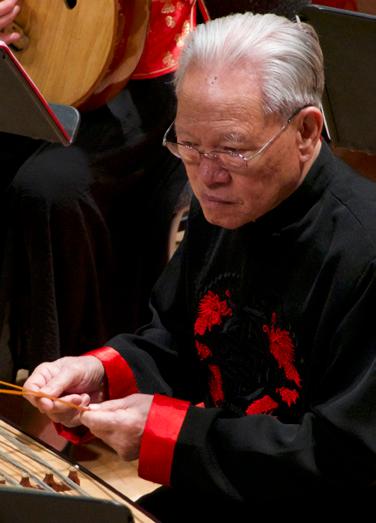
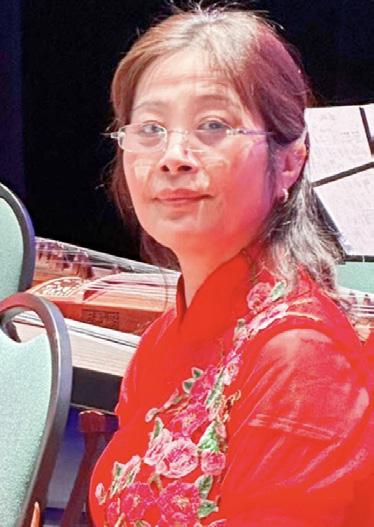


Yang Chun Lu (Spring Yang) is a distinguished alumna of the Sichuan Music Conservatory, where she pursued a major in Erhu performance and a minor in Guzheng. With a strong passion for music, she embarked on a professional career in music performance upon graduating. Ms. Yang’s dedication to music education led her to establish the Spring Music School, a pioneering institution in Atlanta, Georgia, offering instruction in multiple Chinese musical instruments. As the founder of Spring Music School, Ms. Yang has played a pivotal role in promoting Chinese music and culture in the Atlanta community. Previously, she held the role as the director of the Emory University Chinese Music Ensemble, where she guided and inspired students in their musical journey. Additionally, she organizes concerts regularly for her students, providing them with valuable performance opportunities and showcasing their talents to the public.With over two decades of teaching experience, Spring Yang’s influence extends beyond her school and ensemble. She has conducted workshops and performances at prestigious institutions such as Georgia State University, Georgia Tech University, and Georgia Gwinnett College, spreading awareness and appreciation for Chinese music. Her performances at renowned venues like the High Museum of Arts, the State Botanical Gardens, and the Woodruff Arts Center have further solidified her reputation as a versatile and accomplished musician in both traditional and contemporary settings.
Huang Rong Fu is a highly esteemed figure in the realm of music, serving as an educator, performer, and national-level musician affiliated with the prestigious Central Radio National Orchestra in China. His exceptional talent and dedication have earned him membership in the esteemed Chinese Musicians Association, a privilege reserved for a select few top musicians in the country. One of Huang Rong Fu’s notable contributions to the music world is his role as the co-inventor of the 401 yangqin system. This innovative system has since become the standard instrument used by all yangqin players, showcasing Huang Rong Fu’s influence and expertise in shaping the musical landscape. His expertise and contributions have had a lasting impact on the development of yangqin music both in China and internationally. Currently, Huang Rong Fu holds the position of principal yangqin player at the Spring Music School and Taoran Music Ensemble in Atlanta, Georgia. In this role, he continues to inspire and mentor aspiring musicians, sharing his wealth of knowledge and passion for music with the next generation of performers.
Chen Ying is a graduate of the Zhejiang Academy of Fine Arts in 1980 where she majored in yangqin and marimba. Her education at this renowned institution laid a solid foundation for her future success in the music industry.In 1995, Chen Ying showcased her talent on an international stage by participating in the inaugural International Jiangnan Sizhu Competition. Her exceptional skills and dedication earned her second place in the professional group category, demonstrating her prowess as a musician. The following year, in 1996, Chen Ying’s career took a significant turn when she became part of China’s pioneering music documentary, “Jiangnan Sizhu.” As a yangqin performer featured in this groundbreaking production, she contributed to documenting and promoting Chinese musical traditions to a global audience. Chen Ying’s musical journey has taken her to various international performances, where she has represented the rich cultural heritage of Chinese music. Her participation in these significant events has not only showcased her talent but also contributed to cultural exchange and appreciation across borders.
Sheng Liling graduated from the Department of Traditional Chinese Music at the Wuhan Conservatory of Music, majoring in pipa. She once served as a pipa performer in the National Opera and Dance Drama Theater’s Chinese Orchestra. In the 1990s, she moved to the United States and toured alongside Spring Yang and Chen Yin around the southeast United States. She has remained active in the performing arts stage and dedicated herself to promoting and teaching pipa performance.
Chen Juanjuan (Jenny Chen) is a classically trained vocalist and passionate music educator. She graduated from the Vocal Music Department of the China Conservatory of Music and began her career as a music TV director at Beijing Television right. After moving to the United States, she established a vocal studio in Johns Creek, Georgia, where she is known for her dedication to teaching and mentoring aspiring singers. In addition to her work as a vocal coach, Chen is the founder and director of the Atlanta Melody Art Ensemble, an amateur singing group based in Lawrenceville, Georgia. The ensemble offers a variety of performing arts activities, including winter concerts, and promotes community engagement in the arts. Under Chen’s leadership, the ensemble has become a platform for local talent, fostering a love for music and performance. With a strong commitment to both performance and education, Chen remains deeply involved in music-related activities throughout the Atlanta area.
The University of Georgia’s Chinese Music Ensemble was incepted in Spring 2022. The course is offered to any UGA students with an interest in Chinese Music.
Students are introduced to playing techniques and repertoire of the Dizi, Hulusi, Erhu, and Guzheng, instruments that are classified in the ancient Chinese Silk and Bamboo category- Si-Zhu. The dizi is a wind instrument with six holes, the Hulusi is a gourd-shaped wind instrument with seven holes, the Erhu is a two-stringed bowed lute and the Guzheng is a twenty-one-stringed zither.
Students are required to learn three instruments during the semester. This semester, they all learned the Hulusi and then were divided into two groups for different repertoire on the Erhu and the Guzheng. Some students had prior experience as well as interest in the dizi, the sheng (a free reed wind instrument), and the Xun (a type of ocarina made of clay). These instruments are also featured in some of the repertoire performed.
In addition to students, the ensemble includes members from the community with an interest and love for Chinese music. We are further joined by professional performers as well as students associated with the Spring Music School in Atlanta.
Daniel Bara, Interim Director
Brandon Craswell, Associate Director, Director of Undergraduate Studies
Emily Gertsch, Associate Director, Director of Graduate Studies
Amy Pollard, Associate Director, Director of Performance Activities
PERFORMANCE FACULTY
*Angela Jones-Reus
D. Ray McClellan
Reid Messich
Amy Pollard
Brandon Quarles
Josh Bynum
Brandon Craswell
Jean Martin-Williams
James Naigus
*Matthew Shipes
Gilbert Villagrana
Kimberly Toscano Adams
*Timothy Adams
Gregory Broughton
Jay Ivey
*Elizabeth Knight
Amy Petrongelli
Anne Slovin
Wanda Yang Temko
John Coble
Damon Denton
Scott Higgins
Grace Huang
Emely Phelps
Evgeny Rivkin
Anatoly Sheludyakov
*Liza Stepanova
Alan Woo
Levon Ambartsumian
Shakhida Azimkhodjaeva
*Daniel Bolshoy
Monica Hargrave
Michael Heald
James Kim
Edward Kreitman
Milton Masciadri
Maggie Snyder
Shaun Baer
Levi Dean
Elizabeth Durusau
Heather Gozdan-Bynum
Tony Graves
Scott Higgins
flute clarinet oboe bassoon saxophone trombone trumpet horn horn
tuba/euphonium trumpet
percussion percussion voice voice voice voice voice voice organ piano piano piano piano piano piano piano piano
violin violin guitar
harp
violin cello
Suziki
double bass
viola
BANDS
Mia Athanas
Brett Bawcum
Jack A. Eaddy, Jr.
*Nicholas Enrico Williams
CHORAL
Daniel Bara
Colin Mann
Daniel Shafer
COMMUNITY MUSIC SCHOOL
SUMMER CAMPS
Stephen Fischer
COMPOSITION & THEORY
Tyler Beckett
Adrian Childs
Emily Gertsch
Daniel Karcher
*Emily Koh
Peter Lane
Dickie Lee
Jared Tubbs
Trinity Vélez-Justo
JAZZ STUDIES
David D’Angelo
Gregory Satterthwaite
James Weidman
MUSIC EDUCATION
*Rebecca Atkins
Alison Farley
Tyler Goehring
Roy Legette
Kristen Lynch
Michael Robinson
Johanna Royo
Brian Wesolowski
Edith Hollander, Administrative Assistant to the Director
Director of Public Relations
Development Associate Music Library Manager
Undergraduate Academic Advisor
Piano Technician
Senior Piano Technician
Marcus Morris
Kathleen Powell
Rocky Raffle
James Sewell
Jared Tubbs
Marshall Williams
MUSIC THERAPY
*Ellyn Evans
Sally Ann Nichols
Jenny Stull
MUSICOLOGY & ETHNOMUSICOLOGY
Karen Bergmann
Naomi Graber
*David Haas
Jared Holton
Jean Kidula
Sarah Pickett
Rumya Putcha
Joanna Smolko
OPERA
Daniel Ellis
Andrew Voelker
ORCHESTRA
Mark Cedel
RECORDING & STREAMING
Eric Dluzniewski
Paul Griffith
*Area Chair
Assistant Director of Athletic Bands
Graduate Program Administrator
Administrative Associate in Bands
Production & Events Manager
Sectioning Officer
Director of Admissions

+
WED 11/12
6:30 p.m. - Reception
7:30 p.m. - Performance
Ramsey Concert Hall
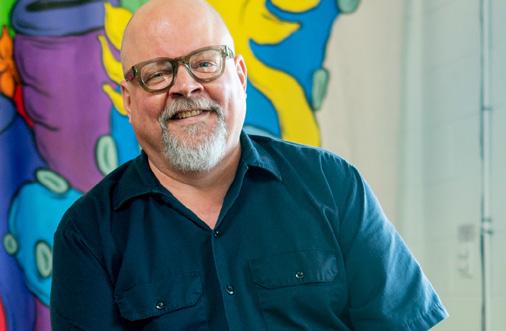


GUEST ARTIST: FRANCESCO ATTESTI, piano
TUES 9/9
FREE CONCERT
THURS 11/13
5:30 p.m.
Ramsey Concert Hall
FREE CONCERT
TUES 9/9
Cortona Culture and Tourism Councilor and renowned interpreter of Romantic and early Twentieth Century piano works.
CONTEMPORARY CHAMBER ENSEMBLE
Featuring “Façade: An Entertainment” by William Walton with Special Guest Mark Mobley as the narrator.
TUES 9/9
THURS 11/13
7:30 p.m.
7:30 p.m.
$22, Adult
$5, Student
Additional fees for online purchases apply. Hodgson Concert Hall
PODGAITS “THE JOURNEY” ARCO CHAMBER ORCHESTRA
This exquisite evening includes The Journey, suite for violin, viola and chamber orchestra by contemporary Russian composer Efrem Podgaits, dedicated to Levon Ambartsumian. It will also feature the cello concerto by contemporary Armenian composer Karen Khanagov with Oliver Yatsugafu, UGA alum as a guest conductor and UGA faculty James Kim, cello, as the soloist.
TUES 9/9
THURS 11/20 FRI 11/21
7:30 p.m.
$27, Adult
$12, Student
Additional fees for online purchases apply. Both performances will be held at 7:30 p.m. in Hodgson Concert Hall
THURSDAY SCHOLARSHIP SERIES ANNUAL HOLIDAY CONCERT
A concert to be thankful for! Once again, Thanksgiving falls so late in the academic calendar that our Annual Holiday Concert will be the week before Thanksgiving. Featuring the Symphony Orchestra, Hodgson Singers and other choirs, Jazz Combos, and more. Forget the Macy’s Parade, join the Hugh Hodgson School of Music for this favorite annual holiday tradition and start the season off right!